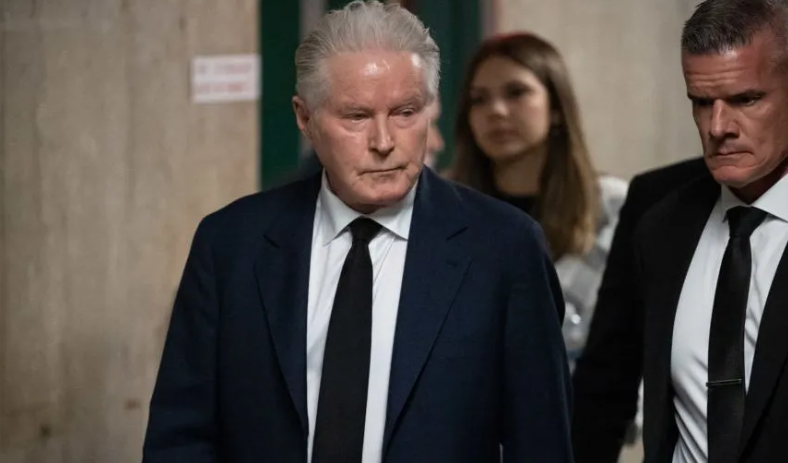Prosecutors have made the decision to drop a case against three individuals accused of conspiring to sell handwritten lyrics to the iconic Eagles hit, “Hotel California.”
The case, which unfolded in a New York court, initially saw Glenn Horowitz, Craig Inciardi, and Edward Kosinski pleading not guilty to charges related to the alleged sale of stolen property.
The saga began when it was revealed in February that a notepad containing the coveted lyrics had been stolen prior to the trio’s involvement in the transaction. This revelation cast doubt on the fairness of the case, prompting a reevaluation of the evidence.
Former Eagles member, Don Henley, played a pivotal role in unraveling the mystery surrounding the lyrics’ origins. Henley asserted that a yellow-lined notepad, containing not only “Hotel California” lyrics but also other Eagles compositions, had been stolen before surfacing for sale in 2012. The notepad had reportedly been sold to Horowitz for a hefty sum of $50,000 in 2005 by Ed Sanders, a writer who had collaborated on a biography of the Eagles in the late 1970s.
Complicating matters further, it emerged that the band had granted Sanders access to their archives, which included the valuable notepads filled with lyrics. Henley adamantly denied providing Sanders with the lyrics, setting off a chain of events that culminated in a grand jury investigation and subsequent charges against the three men for conspiracy to possess stolen property, among other offenses. Notably, none of the individuals were accused of actually stealing the documents.
However, a significant development came to light when newly uncovered emails surfaced, prompting Assistant District Attorney Aaron Ginandes to announce the dismissal of the case. The defense argued that these emails raised serious concerns about the fairness of the trial. Ginandes acknowledged that the delayed disclosure of these emails deprived the defense of crucial information that could have been used to challenge witnesses during cross-examination.
Judge Curtis Farber voiced his frustration with the handling of the case, accusing witnesses and their legal representatives of exploiting attorney-client privilege to withhold potentially damaging information. This revelation dealt a blow to the Attorney General’s office, which had been investigating the case for years in pursuit of justice.
Reacting to the dismissal, Jonathan Bach, attorney for Glenn Horowitz, expressed relief, stating that the case should never have been brought to trial. Similarly, Scott Edelman, representing Edward Kosinski, criticized the timing of the decision, deeming it “too little and too late.” He hinted at the possibility of pursuing legal action of their own in response to the ordeal.
The significance of “Hotel California” cannot be overstated, with the 1976 album boasting a staggering 26 million copies sold nationwide, solidifying its place as one of the best-selling albums in US history. The legal saga surrounding the handwritten lyrics serves as a cautionary tale, highlighting the complexities and pitfalls inherent in the pursuit of justice, particularly in cases involving high-profile individuals and prized cultural artifacts.

